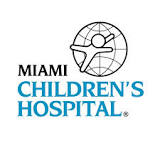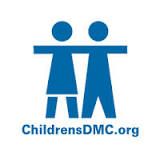MRI Markers of Outcome After Severe Pediatric TBI
| Status: | Enrolling by invitation |
|---|---|
| Conditions: | Neurology |
| Therapuetic Areas: | Neurology |
| Healthy: | No |
| Age Range: | 8 - 17 |
| Updated: | 4/17/2018 |
| Start Date: | April 1, 2016 |
| End Date: | March 2020 |
MRI Markers of Outcome After Severe Pediatric Traumatic Brain Injury (TBI)
Traumatic brain injury (TBI) is the leading cause of death or disability in children. Each
year in the United States, pediatric TBI results in an estimated 630,000 emergency room
visits, 58,900 hospitalizations, and 7000 deaths. The incidence of long-term disability after
severe TBI is high, with over 60% of children requiring educational or community based
supportive services 12 months post-injury. Over 5,000 children require inpatient
rehabilitation after TBI each year and an estimated 145,000 US children are currently living
with disabilities after a severe TBI. Hospital costs for the acute treatment of children with
TBI are estimated at ~$2.6 billion each year, while the gross annual costs accounting for
long-term care and lost productivity approach $60 billion. Therefore, pediatric TBI is a
major public health concern and new ways to diagnose and treat TBI are urgently needed.
year in the United States, pediatric TBI results in an estimated 630,000 emergency room
visits, 58,900 hospitalizations, and 7000 deaths. The incidence of long-term disability after
severe TBI is high, with over 60% of children requiring educational or community based
supportive services 12 months post-injury. Over 5,000 children require inpatient
rehabilitation after TBI each year and an estimated 145,000 US children are currently living
with disabilities after a severe TBI. Hospital costs for the acute treatment of children with
TBI are estimated at ~$2.6 billion each year, while the gross annual costs accounting for
long-term care and lost productivity approach $60 billion. Therefore, pediatric TBI is a
major public health concern and new ways to diagnose and treat TBI are urgently needed.
Severe pediatric TBI results in a range of neurocognitive and behavioral deficits with
resultant impact on school performance, social functioning, and quality of life. Sixty
percent of children suffer from long-term functional impairments after severe TBI, and more
than 40% demonstrate deficits in multiple cognitive and psychological domains. Importantly, a
recent meta-analysis revealed that rather than catching up to their peers in these domains,
children with severe TBI fall further behind over time. These deficits in cognitive and
emotional function have a major impact on the child's quality of life after a TBI. A large
study recently reported that severe TBI patients demonstrated lower quality of life than
children undergoing active treatment for cancer. Considerable variation exists in the
severity of impairment within each cognitive domain from patient to patient, likely relating
to the mechanism of injury, the type and location of lesion, patient age, and pre-morbid
functioning among other factors. While clinical scales such as the Glasgow Coma Scale (GCS)
are useful for assessing injury severity and may provide general prognostic information, they
are insufficient to identify risk for specific cognitive deficits. Identifying predictors of
impairment within specific domains would aid in directing rehabilitation strategies towards
at-risk cognitive domains, thereby improving long-term function and quality of life.
The investigators are partnering with an ongoing pediatric TBI trial (ADAPT Trial: Approaches
and Decisions in Acute Pediatric TBI) and will also be enrolling past UW patients and healthy
controls. Consistency in timing of follow-up scans, large sample size and access to the ADAPT
Trial injury severity data and neuropsychological testing will give this study unprecedented
power to assess the relationship between early MRI findings and subsequent atrophy, white
matter injury, network connectivity changes and neurocognitive and behavioral impairments.
resultant impact on school performance, social functioning, and quality of life. Sixty
percent of children suffer from long-term functional impairments after severe TBI, and more
than 40% demonstrate deficits in multiple cognitive and psychological domains. Importantly, a
recent meta-analysis revealed that rather than catching up to their peers in these domains,
children with severe TBI fall further behind over time. These deficits in cognitive and
emotional function have a major impact on the child's quality of life after a TBI. A large
study recently reported that severe TBI patients demonstrated lower quality of life than
children undergoing active treatment for cancer. Considerable variation exists in the
severity of impairment within each cognitive domain from patient to patient, likely relating
to the mechanism of injury, the type and location of lesion, patient age, and pre-morbid
functioning among other factors. While clinical scales such as the Glasgow Coma Scale (GCS)
are useful for assessing injury severity and may provide general prognostic information, they
are insufficient to identify risk for specific cognitive deficits. Identifying predictors of
impairment within specific domains would aid in directing rehabilitation strategies towards
at-risk cognitive domains, thereby improving long-term function and quality of life.
The investigators are partnering with an ongoing pediatric TBI trial (ADAPT Trial: Approaches
and Decisions in Acute Pediatric TBI) and will also be enrolling past UW patients and healthy
controls. Consistency in timing of follow-up scans, large sample size and access to the ADAPT
Trial injury severity data and neuropsychological testing will give this study unprecedented
power to assess the relationship between early MRI findings and subsequent atrophy, white
matter injury, network connectivity changes and neurocognitive and behavioral impairments.
Inclusion Criteria:
Aim 1 Subjects:
- Children 0 through < 18 years of age
- Diagnosis of severe TBI (defined as a Glasgow Coma Scale (GCS) score less than or
equal to 8)
- Had an intracranial pressure (ICP) monitor as part of standard care
Aims 2 & 3 Subjects:
- Children 9 through < 18 years of age with severe TBI
- Consent for a follow-up MRI within 10 years of the time of TBI
Controls:
- Healthy children greater than or equal to 9 and < 18 years of age.
Exclusion Criteria:
- TBI & controls:
- Anyone unable to tolerate a non-sedated MRI
Controls:
- Any history of head injury resulting in loss of consciousness
- Standard contraindications to MRI (metallic implants, implanted electronic devices,
pregnancy, etc.).
We found this trial at
26
sites
University of Alabama at Birmingham The University of Alabama at Birmingham (UAB) traces its roots...
Click here to add this to my saved trials
Johns Hopkins University The Johns Hopkins University opened in 1876, with the inauguration of its...
Click here to add this to my saved trials
Click here to add this to my saved trials
University of California at Los Angeles The University of California, Los Angeles (UCLA) is an...
Click here to add this to my saved trials
Miami Children's Hospital Welcome to Miami Children
Click here to add this to my saved trials
Columbia University In 1897, the university moved from Forty-ninth Street and Madison Avenue, where it...
Click here to add this to my saved trials
University of Pittsburgh The University of Pittsburgh is a state-related research university, founded as the...
Click here to add this to my saved trials
Univ of Washington Founded in 1861 by a private gift of 10 acres in what...
Click here to add this to my saved trials
Children's Healthcare of Atlanta Whether treating a toddler in an emergency or supporting a teen...
Click here to add this to my saved trials
Click here to add this to my saved trials
Click here to add this to my saved trials
University of Cincinnati The University of Cincinnati offers students a balance of educational excellence and...
Click here to add this to my saved trials
Ohio State University The Ohio State University’s main Columbus campus is one of America’s largest...
Click here to add this to my saved trials
Click here to add this to my saved trials
Click here to add this to my saved trials
Click here to add this to my saved trials
Children's Hospital of Michigan Since 1886, the Children's Hospital of Michigan has been dedicated to...
Click here to add this to my saved trials
Click here to add this to my saved trials
500 University Dr
Hershey, Pennsylvania 17033
Hershey, Pennsylvania 17033
(717) 531-6955

Penn State Milton S. Hershey Medical Center Penn State Milton S. Hershey Medical Center, Penn...
Click here to add this to my saved trials
Texas Children's Hospital Texas Children's Hospital, located in Houston, Texas, is a not-for-profit organization whose...
Click here to add this to my saved trials
Madison, Wisconsin 53792
Principal Investigator: Peter Ferrazzano, MD
Click here to add this to my saved trials
Univ of Pennsylvania Penn has a long and proud tradition of intellectual rigor and pursuit...
Click here to add this to my saved trials
Phoenix Children's Hospital Phoenix Children's Hospital has provided hope, healing, and the best healthcare for...
Click here to add this to my saved trials
Click here to add this to my saved trials
Click here to add this to my saved trials
111 Michigan Ave NW
Washington, District of Columbia
Washington, District of Columbia
(202) 476-5000

Childrens National Medical Center As the nation’s children’s hospital, the mission of Children’s National Medical...
Click here to add this to my saved trials













